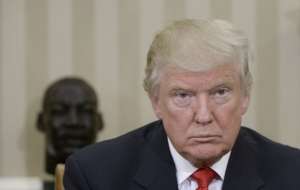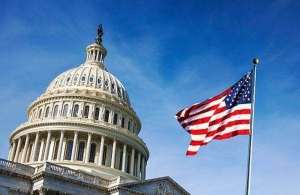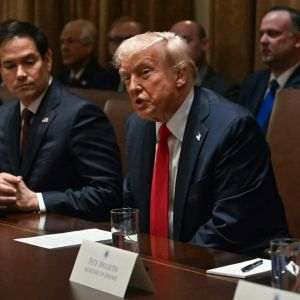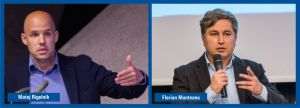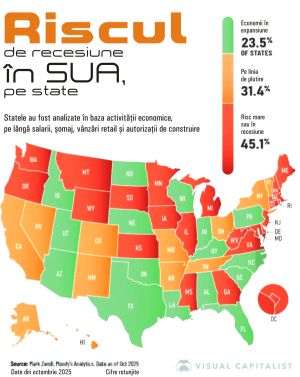In a context of economic uncertainty and growing political tensions, the Chancellor of Germany, Olaf Scholz, made an unexpected move: the dismissal of the Minister of Finance, Christian Lindner, a decision that means the rupture of the governing coalition formed by the SPD (Social Democratic Party), the FDP ( Free Democratic Party) and the Greens, leading to a wave of political instability in one of Europe's strongest economies, according to Berliner Zeitung, DPA and AFP.
According to the cited sources, Olaf Scholz motivated Lindner's dismissal because of the Finance Minister's inflexible position on changing the debt ceiling. The German chancellor has argued that easing this measure in emergency situations is essential to quickly respond to economic and security challenges, especially in the context of the war in Ukraine, but Lindner's refusal to budge on this point has significantly contributed to the coalition's breakdown.
After the dismissal of Lindner by the German president at the chancellor's request, Olaf Scholz said: "Politics starts with looking at reality. And the reality for Germany is: Russia's war of aggression against Ukraine has profoundly changed the security situation for years to come. We need to invest much more in our defense and in the Bundeswehr. By the way, especially now, after the results of the US elections. 1.2 million Ukrainians found protection from Russian bombings with us; we do what is right. We support Ukraine in its defensive struggle with almost 30 billion euros. We also do this because it serves our own security interests. A Russian victory would cost us much more. Supporting Ukraine is and remains important. (...) There are solutions on how we can solidly finance our community and its tasks. There are solutions for a household that simultaneously strengthen internal, external and social security. I suggested such a solution. Article 115 of the Basic Law expressly provides for a decision to exceed the debt limit in an exceptional, emergency situation, as the coalition had agreed to do in this very case at the end of last year. The Russian war of aggression, now in its third year, and all its consequences are an urgent situation. When an emergency arises, the federal government doesn't just have the right to act. Then the action is mandatory".
Regarding this, Christian Lindner stated: "Olaf Scholz's counter-proposals are boring, unambitious and do not contribute to overcoming the current slowdown in economic growth so that we can maintain our prosperity, social security and our ecological responsibility. Unfortunately, Olaf Scholz has shown that he does not have the power to give our country a new start. Instead, (...) the chancellor gave me an ultimatum regarding the suspension of the debt ceiling. I could not agree to that, because I would have violated the oath I took when I was appointed to the position."
We mention that in 2009, in order to curb the accumulation of new debts amid the global economic crisis of that period, a special paragraph was included in the German Constitution, a paragraph known as the debt break, according to which the Federal Government can contract new debts up to the equivalent of 0.35% of the Gross Domestic Product. But Berlin can exceed this threshold if Germany is hit by a natural disaster or in "situations of exceptional emergency" that are beyond the state's control and significantly affect the country's financial situation. After the introduction of this mechanism, there was only one exception, in the period 2020-2022, when Germany had to suspend the "debt brake" to allow for additional spending in the context of the pandemic.
• Vote of confidence on January 15, 2025
Olaf Scholz's decision was criticized not only by the FDP leader, but also by the opposition represented by the new BSW party, led by Sahra Wagenknecht, who demanded an immediate confidence vote, accusing the government of the fact that political delay would lead to the government's insolvency. Wagenknecht argued that Germany is going through a serious crisis and the chancellor's decisions, including raising the maximum level of the debt ceiling to support Ukraine's military efforts, are misplaced priorities at the expense of investment in national infrastructure and support for pensioners.
Instead Olaf Scholz stated that Lindner showed incapacity in supporting the necessary economic reforms and that he put his party's interests first at the expense of the common good. Immediately after the dismissal of the finance minister, the German chancellor said that Lindner had repeatedly blocked important initiatives, such as measures to cap taxes on welfare local businesses and providing tax incentives for domestic investment. The head of government in Berlin argued that these reforms are essential to maintain Germany's competitiveness and the stability of jobs in the automotive industry. Scholz criticized Lindner's insistence on measures to reduce social spending and tax cuts, which he described as "unfair" and "irresponsible" in the face of the current economic crisis.
FDP leader Christian Lindner responded to these accusations, saying that his party's proposed measures, such as cutting red tape and supporting entrepreneurship, had been ignored by Scholz. He accused the German chancellor of a lack of economic vision and an inability to offer realistic solutions to current challenges.
To stabilize the government and avoid a prolonged period of uncertainty, Scholz decided to request a vote of confidence in the Bundestag on January 15, 2025. If it fails, Germany may have to hold early elections in March, according to the Constitution. The German chancellor argues that the country needs a government capable of acting in the national interest and overcoming ideological obstacles and partisan interests, and has said he will negotiate with CDU leaders.
Lindner proposed, for his part, the organization of early elections and the formation of a new government capable of maintaining stability and responding promptly to Germany's economic needs. Olaf Scholz rejected this offer, preferring to bring the matter before the Bundestag and try to gain parliamentary support to avoid an expensive and unstable government transition.
The dismissal of Christian Lindner and the break-up of the "traffic light" coalition revealed deep tensions and a fundamental difference of vision between Germany's political partners. Faced with a political crisis that shakes the stability of the country, Olaf Scholz must ensure a functional government, capable of responding to both domestic and international challenges. The confidence vote in January will represent a crucial moment for the future of the German government and for the country's economic and social stability. If the Bundestag supports Scholz's leadership, he will have a chance to rebuild the government's balance and implement the necessary economic reforms. If, instead, the confidence vote is rejected, Germany will be heading into an uncertain period, with early elections and new negotiations to form a viable coalition. This crisis is not only a test for Olaf Scholz, but also a wake-up call for the entire German political class, which must find ways to compromise to prevent prolonged political and economic instability.










